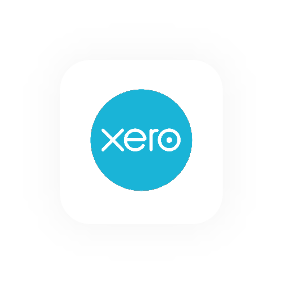Job Interview Red Flags
27 Interview Red Flags (for Candidates & Interviewers)
Whether you’re a seasoned marketer vetting a new hire or a hopeful job seeker eager to land your next role, job interviews can reveal more than résumés or job descriptions ever could. While every interaction should ideally reflect professionalism, clarity, and alignment, that’s not always the case. Knowing what to look out for - on both sides - can save you from making a costly mistake.

Below are 27 interview red flags that should make candidates and interviewers dig deeper - or walk away.
 Red flags for candidates
Red flags for candidates
These are warning signs job seekers should watch for in a job interview. They may reveal underlying issues with the company, the hiring team, or even the company culture.
1. Disorganized interview process
If the interview process is scattered - missed calls, last-minute changes, or unclear agendas - it’s a red flag. A disorganized interview process can reflect poorly on how the company operates internally.
2. Vague or inconsistent answers
When interviewers give vague or inconsistent answers about the role, team dynamics, or leadership, it can be a sign they’re hiding something or haven’t done their homework.
3. Drawn out interview process
A drawn out interview process with no clear timeline, feedback, or structure suggests internal chaos or indecision within the hiring manager’s team.
4. No clear job description
If the job description is missing, inconsistent, or constantly shifting, expect confusion down the line. This is a major red flag for anyone trying to find alignment.
5. No eye contact
Failing to make or maintain eye contact may suggest discomfort, dishonesty, or lack of engagement from the interviewer. While it may not always be intentional, it’s still something to note.
6. Too many “positive aspects”
When everything is portrayed as sunshine and rainbows without any mention of challenges, the company may be avoiding transparency. Look for concrete examples of real work scenarios.
7. Unclear company values or mission
If company representatives can’t explain the company’s mission or company values, that’s a warning sign that the organization lacks identity or direction.
8. Over-focus on personal questions
If the conversation veers toward marital status, sexual orientation, or personal time unrelated to the job, it’s not just a red flag - it may be illegal.
9. Disrespectful behavior
Interrupting, showing up late, or checking phones constantly are all signs of disrespectful behavior that may reflect the work environment.
10. Overly negative talk about previous employees
When current or former employees are criticized, or past employers are bashed, it signals a toxic workplace. A good interviewer will focus on learnings, not grievances with the previous person in the role.
11. Lack of interest in you
If they don’t ask about your work history, technical skills, or goals, they might not be seriously considering you - or worse, they may not value their job candidates.
12. Poor communication between rounds
Lack of clarity between the first interview, second interview, and the next interview could be an indicator of weak internal processes or a misaligned hiring team.
13. No discussion about future opportunities
If future opportunities and growth aren’t addressed, you might be stepping into a dead-end role.
14. Obvious red flag responses
Sometimes the interview shows its true colors through offhand comments or flippant remarks. Don’t dismiss an obvious red flag just because everything else sounds good.
15. Work-life balance gets glossed over
If work life balance is met with chuckles, vague responses, or evasiveness, this may be a deal breaker - especially if you value your time outside of work.
 Red flags for interviewers
Red flags for interviewers
Just as candidates evaluate companies, recruiters and hiring managers must stay alert to job interview red flags that may indicate a poor hire. Here’s what to watch for:
16. Negative attitude toward past employers
Job seekers who speak poorly of previous employers may be quick to form the same opinions about you.
17. Vague answers to specific questions
If the candidate struggles to provide specific examples of achievements or experiences, it could point to embellishment - or lack of concrete examples altogether.
18. Poor body language
A lack of eye contact, slouched posture, or closed-off body language could indicate discomfort, disinterest, or dishonesty.
19. Overemphasis on salary or perks
While it's normal to discuss compensation, if a candidate is laser-focused on the job offer without asking about the company culture or job satisfaction, it could suggest short-term thinking.
20. Inability to articulate career goals
Candidates who haven’t thought about how the role aligns with their job search or long-term aspirations may lack drive or direction.
21. Inconsistent work history
Large unexplained gaps, conflicting job titles, or frequent job changes in the same job type without progression deserve follow up questions.
22. Lack of genuine interest
If a candidate hasn’t researched the company or can’t explain why they want the role, they may just be going through the motions of job hunting.
23. Fails to ask questions
The interview process is a two way street. If they don’t ask anything, it could reflect a lack of initiative - or interest.
24. Overconfidence or arrogance
Confidence is great. But dismissiveness, talking over the interview team, or refusing feedback are classic interview red flags.
25. Hard won experience doesn't add up
If a candidate claims extensive, hard won experience but can’t describe it in detail, this could be a red herring.
26. No interest in company values
Candidates should show curiosity or alignment not just with the work you do, but with the values you hold as a company. If they don’t ask or seem uninterested, they may not be a culture fit.
27. Defensiveness to feedback
Be cautious if candidates get defensive when asked follow up questions or are challenged on their views. Open dialogue is essential to collaboration.
Red flags are clues, not verdicts
Spotting job interview red flags doesn’t always mean you should immediately run. Sometimes a red flag is just a prompt to dig deeper, ask more questions, and apply your due diligence. And on the flip side, even an ideal job interview can hide underlying issues, so be curious, critical, and honest throughout.
Whether you're a hiring manager trying to build a stellar team or a candidate navigating the hiring process, identifying common interview red flags can give you valuable insights that lead to better outcomes - and better co-workers.
Remember, the interview process is not just a formality. It’s a mutual evaluation. A two way street.

















